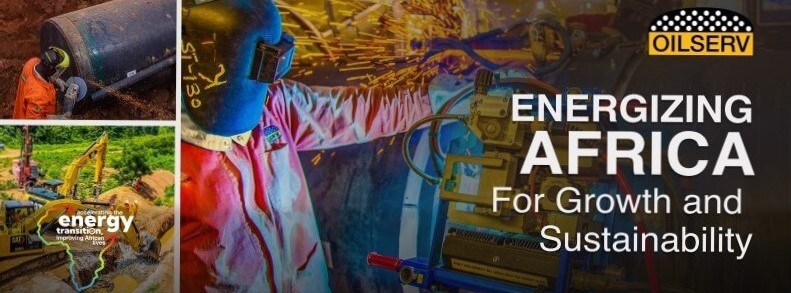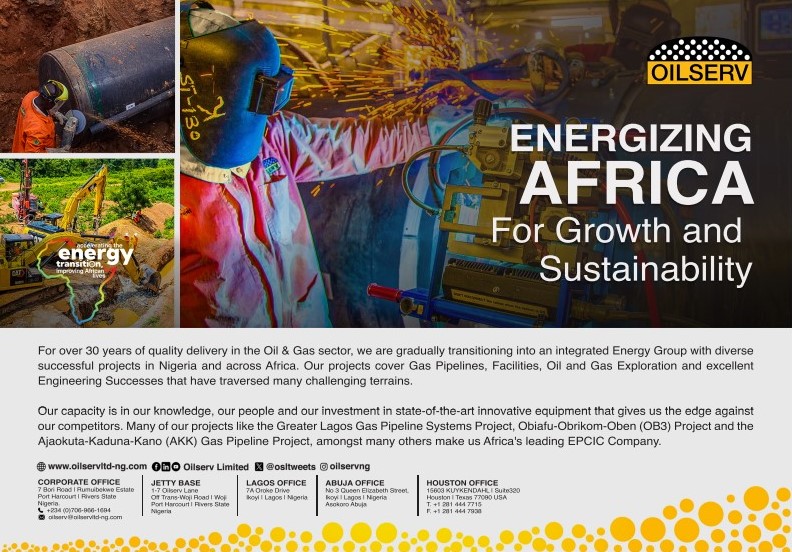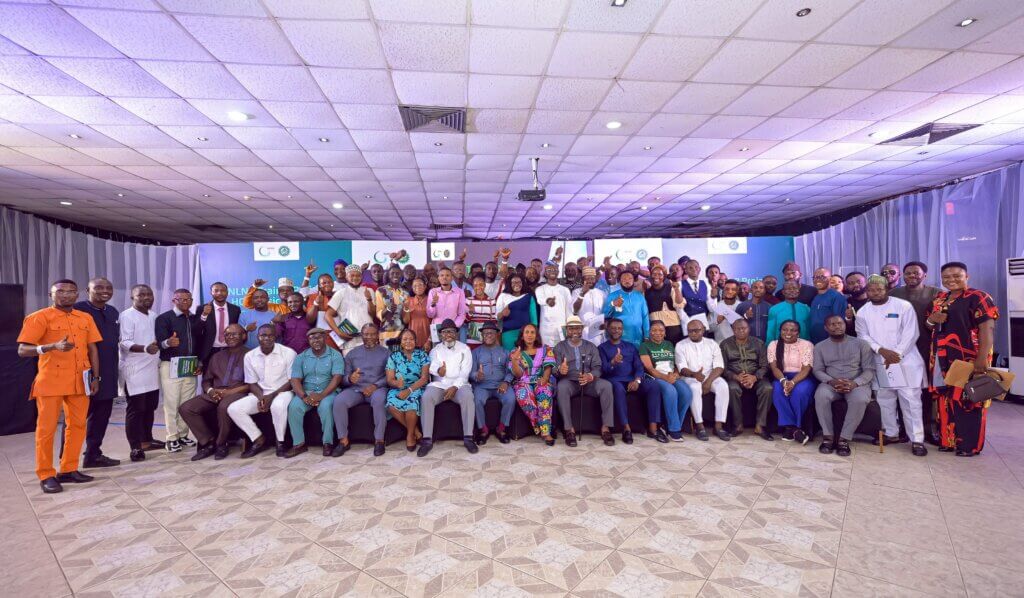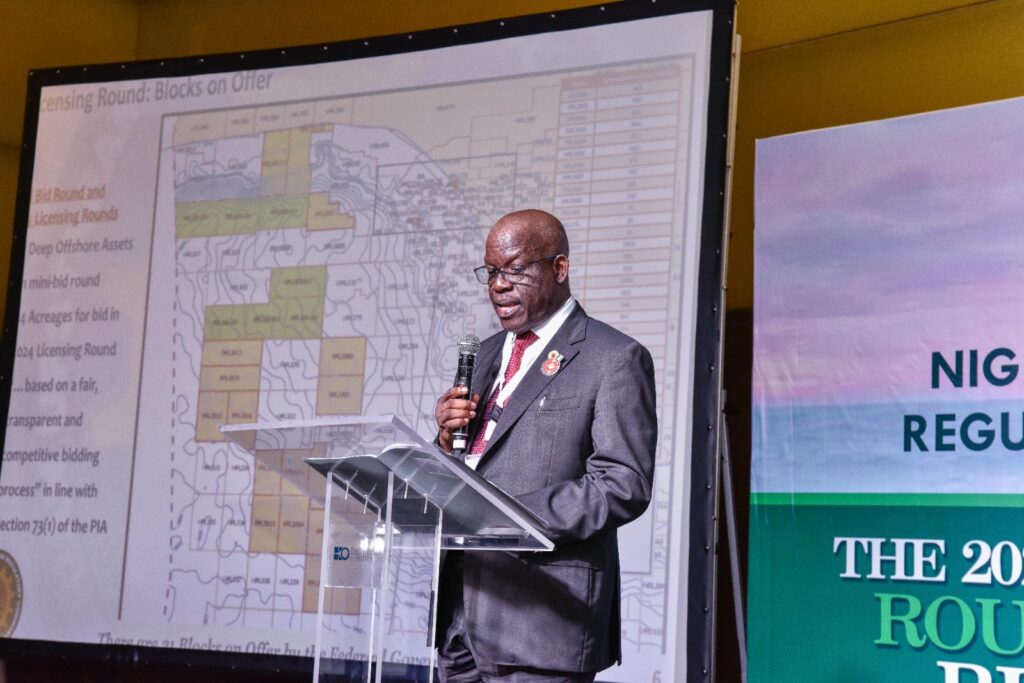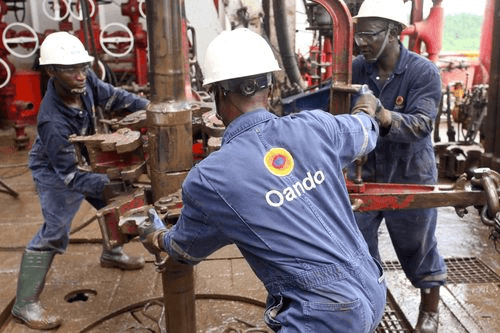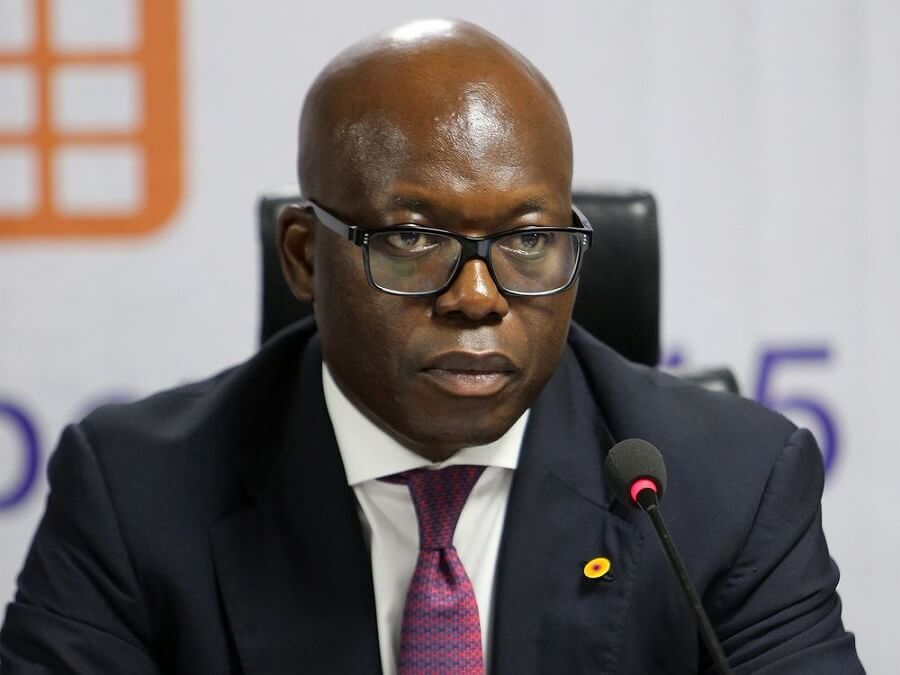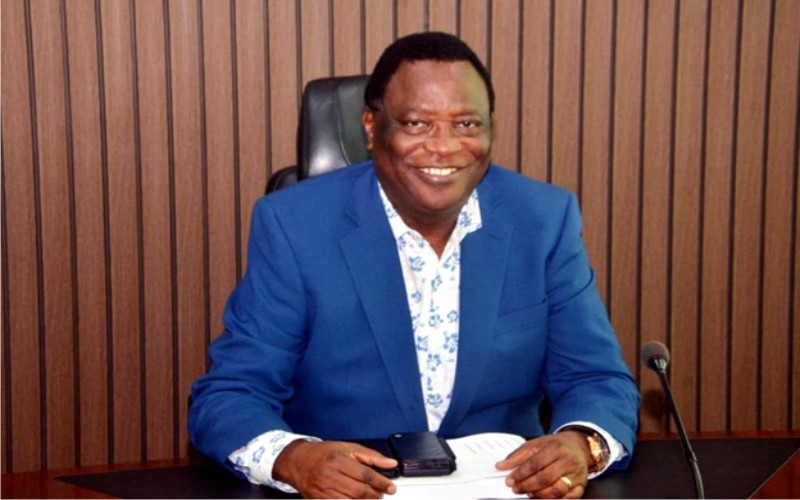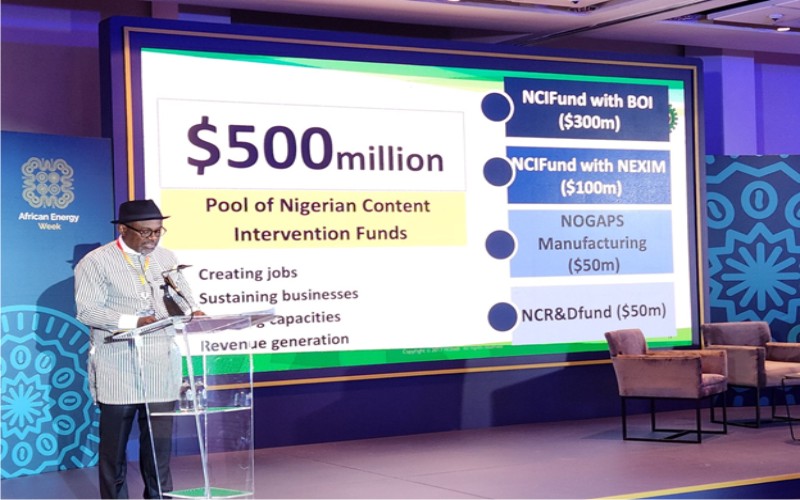
𝐀𝐟𝐫𝐢𝐜𝐚𝐧 𝐧𝐚𝐭𝐢𝐨𝐧𝐬 𝐬𝐞𝐞𝐤𝐢𝐧𝐠 𝐭𝐨 𝐚𝐜𝐡𝐢𝐞𝐯𝐞 𝐞𝐜𝐨𝐧𝐨𝐦𝐢𝐜 𝐩𝐫𝐨𝐬𝐩𝐞𝐫𝐢𝐭𝐲 𝐦𝐮𝐬𝐭 𝐝𝐞𝐯𝐞𝐥𝐨𝐩 𝐥𝐨𝐜𝐚𝐥 𝐜𝐚𝐩𝐚𝐛𝐢𝐥𝐢𝐭𝐢𝐞𝐬 𝐭𝐨 𝐩𝐫𝐨𝐜𝐞𝐬𝐬, 𝐮𝐭𝐢𝐥𝐢𝐳𝐞, 𝐚𝐧𝐝 𝐞𝐱𝐩𝐨𝐫𝐭 𝐭𝐡𝐞𝐢𝐫 𝐫𝐞𝐬𝐨𝐮𝐫𝐜𝐞𝐬 𝐚𝐬 𝐚 𝐦𝐞𝐚𝐧𝐬 𝐨𝐟 𝐩𝐨𝐰𝐞𝐫𝐢𝐧𝐠 𝐭𝐡𝐞𝐢𝐫 𝐠𝐫𝐨𝐰𝐭𝐡 𝐚𝐧𝐝 𝐝𝐞𝐯𝐞𝐥𝐨𝐩𝐦𝐞𝐧𝐭, 𝐭𝐡𝐞 𝐄𝐱𝐞𝐜𝐮𝐭𝐢𝐯𝐞 𝐒𝐞𝐜𝐫𝐞𝐭𝐚𝐫𝐲 𝐨𝐟 𝐭𝐡𝐞 𝐍𝐢𝐠𝐞𝐫𝐢𝐚𝐧 𝐂𝐨𝐧𝐭𝐞𝐧𝐭 𝐃𝐞𝐯𝐞𝐥𝐨𝐩𝐦𝐞𝐧𝐭 𝐚𝐧𝐝 𝐌𝐨𝐧𝐢𝐭𝐨𝐫𝐢𝐧𝐠 𝐁𝐨𝐚𝐫𝐝 (𝐍𝐂𝐃𝐌𝐁), 𝐄𝐧𝐠𝐫. 𝐒𝐢𝐦𝐛𝐢 𝐊𝐞𝐬𝐢𝐲𝐞 𝐖𝐚𝐛𝐨𝐭𝐞 𝐬𝐚𝐢𝐝 𝐨𝐧 𝐓𝐮𝐞𝐬𝐝𝐚𝐲.
The Executive Secretary made the submission in his presentation at the ongoing 2023 Africa Energy Week in Cape Town, South Africa. He regretted that most African nations lacked requisite local capacities in key areas of the oil and industry such as Engineering, Procurement, Construction and Fabrication, Installation, Commissioning, and Operation, and that resulted in the loss of job creation opportunities, revenues, skills acquisition, and other aspects of national development.
A further negative impact is that those broad categories take a significant proportion of the oil and gas industry expenditure, hence it is expedient for oil-producing nations to develop local capabilities that would ensure that those financial outlays are retained in-country, he said. Advising on the strategy for enhancing local content capacity in African nations, Wabote stated that one important plan is to make local content a national agenda and back it with the appropriate legislation or legal framework in their respective jurisdictions.

This would “make it clear to all and sundry that local procurement, fabrication, and manufacturing is a national priority such that all institutions, businesses, decision-makers, investors, and citizens will buy into the vision.” Using Nigeria as an example, Wabote recalled that Nigeria started with policy directives to deepen local content practice in the oil and gas sector before enacting the Nigerian Oil and Gas Industry Content Development (NOGICD) Act in 2010, thereby eliminating the possibility of companies complying with local content requirements in the oil and gas sector on ‘best endeavour’ basis’.
He listed other strategies for enhancing local content capacity as establishing factual data on current capacities in-country and carrying out gap analysis between current realities and the national vision. He noted that “periodic gap analyses are essential to determine gaps that need to be closed and the progress being made in the target areas of interest. He insisted that local content is not ‘copy and paste’, hence local peculiarities must be factored into programs aimed at enhancing local capabilities.”
The NCDMB boss identified other enhancement tools to include Structured Capacity Building interventions to close identified gaps and funding and incentives, describing them as essentials to implement local content programs, develop infrastructure, attract new investments, and keep existing businesses afloat. Speaking further, Wabote highlighted the importance of patronizing in-country capacities and capabilities, clarifying that all policies, capacities, and individuals will become frustrated if there is no outlet to engage them and receive rewards for sustainability and growth.
He explained that the Board ensures patronage of local goods and services by using the ‘right of first refusal’ principle contained in the Nigerian Content Act and various project certification and compliance monitoring tools. Giving an update on the Board’s activities, the Executive Secretary informed that NCDMB commenced the implementation of a 10-year Strategic Roadmap in 2018, with the goal of raising the level of Nigerian Content in the Nigeria”


